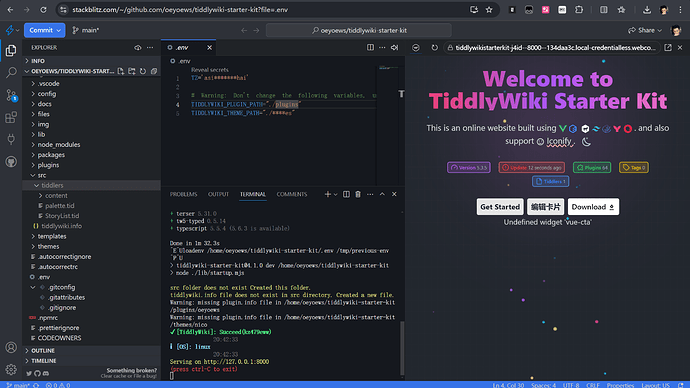There are MANY advantages of TW on nodejs, to the point I would never run a standalone TW again.
1) ACCESS:
My TW is accessible behind a login on my server from any device, anywhere, anytime. I can borrow a friends phone, laptop, or even a library computer and add entries anytime I want no matter where I am and if I left my devices at home. No software required, just a browser.
2) REST API:
I quite often make tiddlers from my phone by voice. I use a combination of Tasker on my Android phone and Node-red on my server to generate tiddlers from voice to text. I have a quick toggle button on my Android that opens the Google voice listener and I start talking and it converts my voice to text, sends it over to node-red which then injects a tiddler into my nodejs Tiddlywiki, so I post notes or journal entries from my car or a restaurant on the fly and it is already in my tiddlywiki when I get home.
3) BACKUP
I run gitea servers (hosting my own git repositories like GitHub, but private on my own servers). I have 2 servers in Colorado and 1 in Florida in my homes where I travel back and forth from for redundancy, and every 6 hours my tiddlers, which are single text files with nodejs are backed up via automated git commits to all 3 of my gitea servers, so all my data is secure and redundant.
I could go on, as there are many more benefits to running on nodejs. Like others, I have TONS of images, hundreds and hundreds, as well as PDF documents, etc, and the load time on my server is instantaneous, using lazy-loading, so it is fast, reliable, stable and always accessible.
